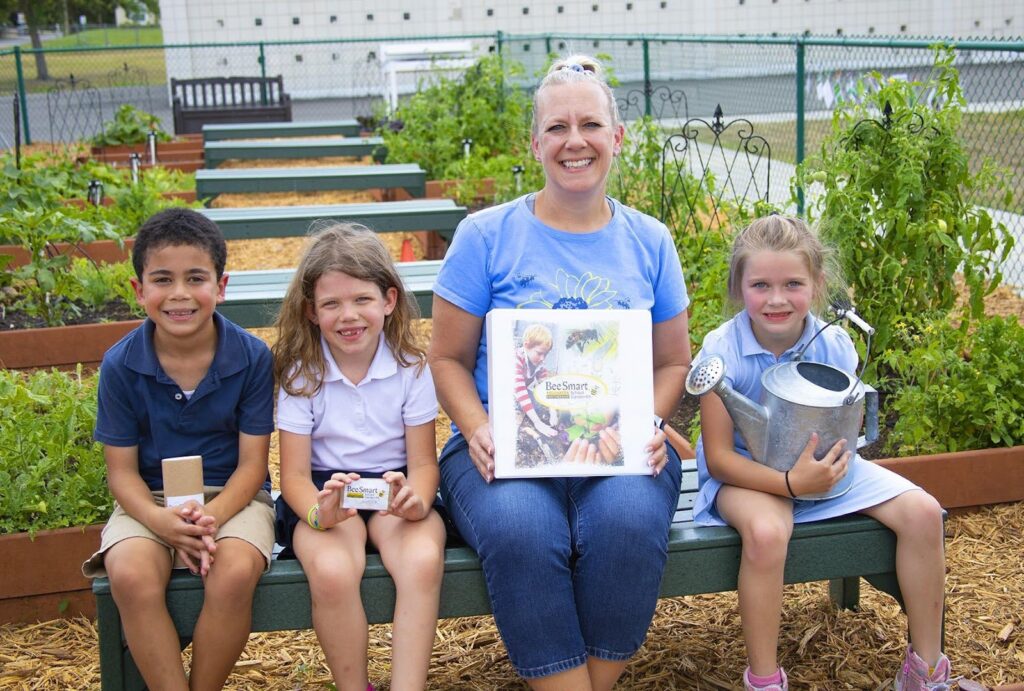-
ADS
-
ADS
-
ADS
-
ADS
-
Technology
Our website News- September 2024
-
Juniper Networks enhances AI-native networking platform for Wi-Fi 7Source Link
- Read more...
-
- 0 comments
- 22 views
-
In IT environments, some secrets are managed well and some fly under the radar. Here’s a quick checklist of what kinds of secrets companies typically manage, including one type they should manage: Passwords [x] TLS certificates [x] Accounts [x] SSH keys ??? The secrets listed above are typically secured with privileged access management (PAM) solutions or similar. Yet, most traditional PAMSource Link
- Read more...
-
- 0 comments
- 26 views
-
DC01UK: Everything you need to know about the UK government-backed Hertfordshire mega-datacentreSource Link
- Read more...
-
- 0 comments
- 18 views
-
DC01UK: Everything you need to know about the UK government-backed Hertfordshire mega-datacentreSource Link
- Read more...
-
- 0 comments
- 19 views
-
DC01UK: Everything you need to know about the UK government-backed Hertfordshire mega-datacentreSource Link
- Read more...
-
- 0 comments
- 22 views
-
Amazon Great Indian Festival 2024 sale kicks off on September 27, ahead of the upcoming festive season. It will bring deals on a wide range of items such as smartphones, tablets, TVs, home appliances and other electronics. Buyers will also be able to leverage lucrative bank offers, No-cost EMIs, and exchange offers during the sale.Source Link
- Read more...
-
- 0 comments
- 20 views
-
IT Sustainability Think Tank: The 10 energy risks enterprises must prepare for nowSource Link
- Read more...
-
- 0 comments
- 24 views
-
IT Sustainability Think Tank: The 10 energy risks enterprises must prepare for nowSource Link
- Read more...
-
- 0 comments
- 20 views
-
IT Sustainability Think Tank: The 10 energy risks enterprises must prepare for nowSource Link
- Read more...
-
- 0 comments
- 19 views
-
Happy Eco News We Need Them and They Need Us! How We Can Do More for Pollinators
Reading Time: 5 minutes We need them and they need us! How we can do more for pollinators
Life as we know it wouldn’t be possible without the everyday efforts of pollinators, the little things that keep our economy, food systems, and ecosystems healthy. Pollinators are an often unsung group of insects, birds, and mammals that perform a critical step in ensuring the successful reproduction of flowering plants by moving pollen from the anther (male part) of a flower to the stigma (female part).
Somewhere between 75% and 95% of all flowering plants on the earth need help with pollination – they need pollinators. Pollinators provide pollination services to more than 180,000 plant species and more than 1,200 crops. That means one out of every three bites of food you eat is there because of pollinators! If we want to talk dollars and cents, pollinators add 217 billion dollars to the global economy, and honey bees alone are responsible for an estimated 18 billion dollars in agricultural productivity in the United States. In addition to our food, pollinators support healthy ecosystems that clean the air, stabilize soils, protect from severe weather, and support other wildlife.
Despite their outsized importance to our ecosystems and ways of life, pollinator diversity and abundance are declining. According to the US Fish and Wildlife Service, there are more than 70 species of pollinators listed as either threatened or endangered, with charismatic species like the monarch butterfly continuing to show worrying declines. It’s well documented that decreased pollinator presence is driven primarily by habitat loss, misuse of chemicals and pesticides, and climate change. These compounding forces have imperilled thousands of pollinator species, but luckily, the most important part of this story is that we can make a real difference in the viability of pollinator populations across the continent.
Here at Pollinator Partnership, the country’s largest nonprofit dedicated exclusively to pollinator health, we believe that every one of us has the resources and obligation to improve habitat availability and the public understanding of pollinators. With a strict loyalty to the best possible science, we have built cross-sector coalitions for over a quarter of a century to identify and advance solutions that mitigate and ultimately reverse pollinator decline.
Personally, the thing I appreciate most about pollinator conservation efforts is the very real fact that we as individuals can make a significant difference in the face of climate change and faltering ecosystems by zeroing in on pollinator health, simply due to the fact that pollinators have an outsized impact in ecosystem resilience.
In an age where news about the environment is dire, depressing, and daunting, by using our agency to tell others about pollinators, create a habitat where we can, and encourage others to do the same, we can make not only a measurable difference for the environment but an entirely necessary one. While it’s abundantly clear that irreparable damage has been done to oceanic and terrestrial ecosystems worldwide, our fight back against climate change can start in our own communities and backyards by providing for the little things that give us so much in return.
Here are some ways we’re empowering teachers, students, farmers, and folks like you to make change for pollinators and the ecosystems that rely on them:
Our School Garden Kit program is one of Pollinator Partnership’s most popular offerings, as it brings pollinator conservation into the classroom, where students are introduced to the essential role pollinators play in our economy, food system, and the environment. With the help of teachers, students, and parents, we designed these kits as a twelve-lesson curriculum that details how pollination occurs, the many different types of pollinators, and the importance of pollinators in our culture and economy. Most importantly, our School Garden Kits get students outside, giving them a hands-on learning experience that emphasizes environmental stewardship, sustainability, and a firsthand appreciation for bees, butterflies, and other pollinators that are vital to the world around them. Learn more here!
School Garden Kit recipients in Sarasota, Florida. Image: Pollinator Partnership Our Ecoregional Guides, Garden Recipe Cards, and Find Your Roots tool provide information and inspiration for any individual interested in doing their part to help pollinators. The most important thing you can do is plant for pollinators, and these resources are the perfect way for gardeners to turn their backyard, windowbox, or balcony into much-needed pollinator habitat. Our Ecoregional Guides are tailored to an individual’s specific zip code, which helps individuals to install the plants that will do the most good for pollinators native to their region. These planting guides not only help with plant selection, they contain advice and best practices for starting and maintaining a pollinator garden, and vital information about the natural characteristics of each ecoregion.
As we all know, bees and other pollinators are essential for our food systems. Bee Friendly Farming (BFF) is our agricultural certification program that provides standards and guidelines for farmers interested in promoting pollinator health on their lands. As stewards of the land themselves, our BFF program puts growers at the centre of pollinator conservation efforts where they can benefit not only native and managed pollinators but also crop yield, water and soil quality, and their consumers.
The buy-in from farmers has been nothing short of tremendous. The program has been remarkably successful to date and now includes more than 790 farms of all sizes across North America. The BFF program has now certified more than 372,000 acres of farmland and created more than 161,000 acres of pollinator habitat. While the program has forged strong and lasting relationships with growers in our home state of California and, in particular, the almond industry (which relies heavily on pollination from honey bees), we are looking to expand the program to other crops that rely on bee pollination like apples, pistachios, berries, and stone fruit.
Gemperle Farms, a certified Bee Friendly Farming operation. Image: Pollinator Partnership Lastly, our Bee Friendly Gardening (BFG) program provides individual gardeners, households, community gardeners, and anyone with access to an outdoor living space with the resources and know-how needed to provide functional habitat for pollinators and other wildlife. Through BFG, we’re creating a network of gardeners who have taken the steps to create havens for pollinators wherever they might have the space to do so.
By building this in-person and online cohort of like-minded gardeners, we hope to foster community while increasing habitat connectivity. A Bee Friendly Garden can take many forms, it can be your backyard, a window box, a pot on your front step, a sidewalk garden: no amount of space is too small to plant for pollinators and no amount of habitat is too small to provide pollinators with the essential resources they need!
One of the many Bee Friendly Gardens enrolled in the program. Image: Pollinator Partnership For those looking to do more to help the environment and fight climate change, focusing on pollinators is a perfect place to start. These bees, butterflies, bats, birds, and moths are the little things that keep our food systems functioning, support our healthy diets, and bolster biodiversity and resilience in our ecosystems. They need us, and we need them. Together, by raising awareness about pollinators and creating the need to collect nutrients, take shelter, and reproduce, we’re giving ourselves and our winged friends a fighting chance in an era of climate instability. Join us today!
The post We Need Them and They Need Us! How We Can Do More for Pollinators appeared first on Happy Eco News.
Source Link
- Read more...
-
- 0 comments
- 29 views
-
ADS

